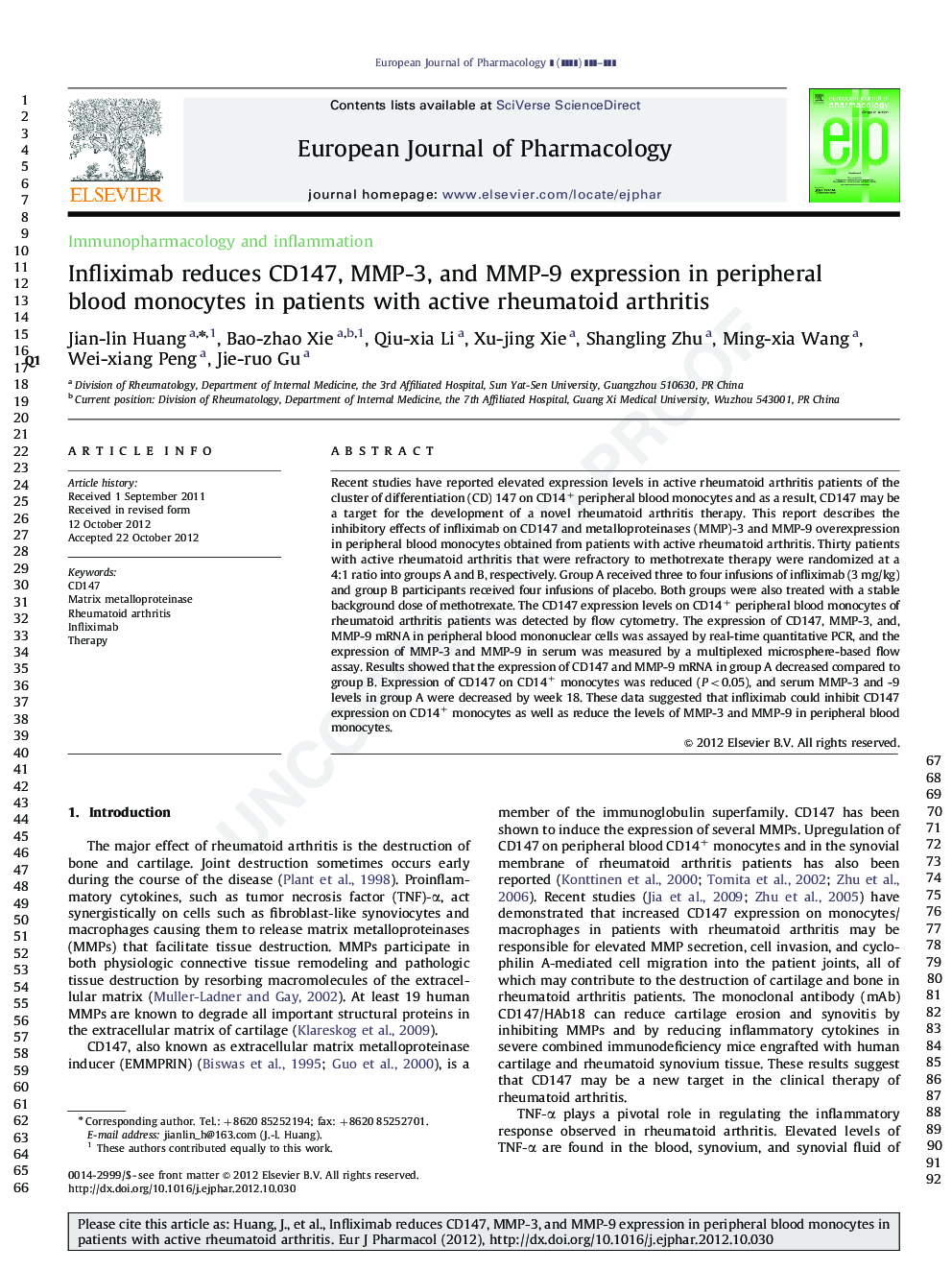| Article ID | Journal | Published Year | Pages | File Type |
|---|---|---|---|---|
| 5829029 | European Journal of Pharmacology | 2013 | 6 Pages |
Abstract
Recent studies have reported elevated expression levels in active rheumatoid arthritis patients of the cluster of differentiation (CD) 147 on CD14+ peripheral blood monocytes and as a result, CD147 may be a target for the development of a novel rheumatoid arthritis therapy. This report describes the inhibitory effects of infliximab on CD147 and metalloproteinases (MMP)-3 and MMP-9 overexpression in peripheral blood monocytes obtained from patients with active rheumatoid arthritis. Thirty patients with active rheumatoid arthritis that were refractory to methotrexate therapy were randomized at a 4:1 ratio into groups A and B, respectively. Group A received three to four infusions of infliximab (3Â mg/kg) and group B participants received four infusions of placebo. Both groups were also treated with a stable background dose of methotrexate. The CD147 expression levels on CD14+ peripheral blood monocytes of rheumatoid arthritis patients was detected by flow cytometry. The expression of CD147, MMP-3, and, MMP-9 mRNA in peripheral blood mononuclear cells was assayed by real-time quantitative PCR, and the expression of MMP-3 and MMP-9 in serum was measured by a multiplexed microsphere-based flow assay. Results showed that the expression of CD147 and MMP-9 mRNA in group A decreased compared to group B. Expression of CD147 on CD14+ monocytes was reduced (P<0.05), and serum MMP-3 and -9 levels in group A were decreased by week 18. These data suggested that infliximab could inhibit CD147 expression on CD14+ monocytes as well as reduce the levels of MMP-3 and MMP-9 in peripheral blood monocytes.
Related Topics
Life Sciences
Neuroscience
Cellular and Molecular Neuroscience
Authors
Jianlin Huang, Baozhao Xie, Qiuxia Li, Xujing Xie, Shangling Zhu, Mingxia Wang, Weixiang Peng, Jieruo Gu,
